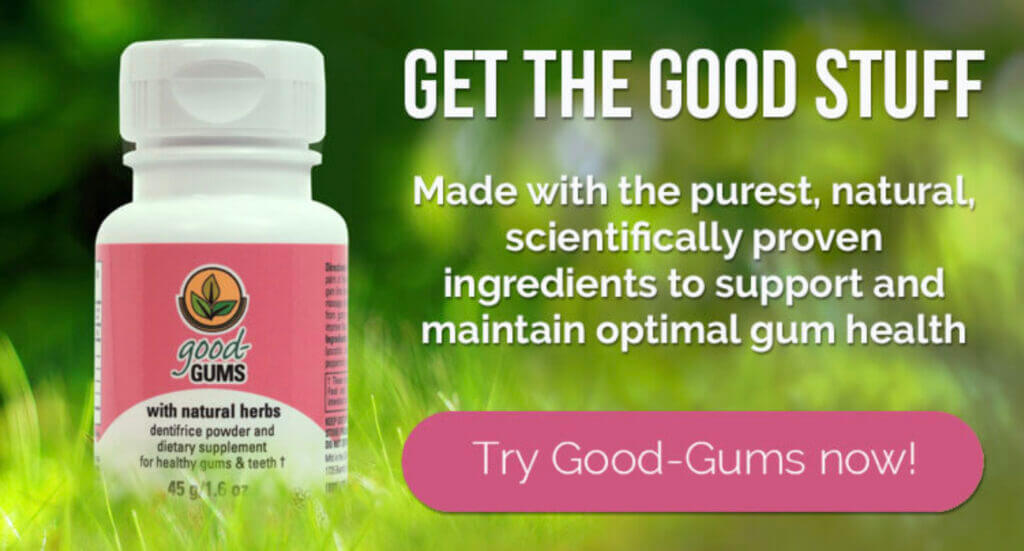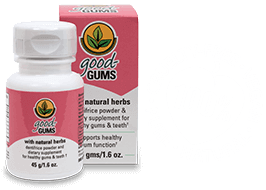Pregnancy & Oral Health: Safeguarding You and Your Baby

As you embark on the initial and vital stages of nurturing your baby during pregnancy, you are faced with a plethora of choices. These decisions encompass various aspects, including dietary preferences, vitamin intake, selecting the right healthcare provider, maintaining a healthy exercise routine, being cautious of potential chemicals and toxins, adapting your daily routine to support your baby’s development, and preparing for post-birth considerations, especially concerning breastfeeding.
Amidst the myriad of considerations, one critical aspect that deserves unwavering attention, and often gets overlooked, is your oral health. We’re excited to delve into the nuances of why your oral health during pregnancy matters, shedding light on essential factors and introducing you to Good-Gums, a natural and safe solution for your gums that can be your trusted companion in this transformative journey.
But before we look at the specific role oral health plays during pregnancy, here is some essential information to support you on your journey towards motherhood.
The Crucial Role of Diet
Your dietary choices during pregnancy play a pivotal role in both your well-being and that of your growing baby. The phrase “Eat the rainbow” takes on a new meaning during this time. Pregnancy elevates your requirement for vitamins and minerals, making a diverse and colorful array of fruits and vegetables the foundation of your diet. To ensure safety, diligently wash all produce to remove any harmful pesticides and bacteria. If possible, opt for organic fruits and vegetables, especially when conventional options are limited.
Navigating the “Dirty Dozen” and “Clean 15”
To make informed choices, familiarize yourself with the “Dirty Dozen” developed by the Environmental Working Group or EWG. The EWG analyzes data on pesticide-contaminated fresh fruits and vegetables based on the latest tests by the U.S. Department of Agriculture and Food and Drug Administration. Conversely, the “Clean 15,” also developed by the EWG, highlights produce items least affected by pesticides. Prioritize these selections to minimize exposure.
Safe Food Handling
Maintaining strict food safety practices is non-negotiable during pregnancy. Refrigerate perishable foods promptly and ensure meticulous cleanliness when preparing meals. These measures safeguard against foodborne illnesses and support your baby’s healthy development.
Mercury Awareness
Mercury is a potential threat lurking in certain fish, particularly larger species like shark, swordfish, tilefish, sea bass, tuna steaks, and king mackerel. These varieties are more likely to contain elevated mercury levels. To mitigate risk, limit your consumption of these fish and opt for smaller, safer options like salmon and tilapia. Raw fish and raw eggs should be completely off the menu during pregnancy to prevent potential foodborne illnesses.
Chemical Caution
As you prepare for motherhood, evaluating the safety of everyday products becomes paramount. Household cleansers, garden products, and cosmetics often contain chemicals that could pose risks to both you and your baby. Thorough research and conscious selection of products can mitigate these concerns.
Household Cleansers: A Clean Sweep
Household cleansers should be chosen with care. Those containing ammonia, lye, sulfuric acid, or mold and mildew cleaners with fungicides should be avoided. Mixing cleansers can create dangerous chemical reactions, so exercise caution. (Mixing chlorine bleach with ammonia leads to the production of highly toxic chloramine gas.) Opt for green cleaning products from reputable brands or explore homemade alternatives using ingredients like baking soda, vinegar, and citrus.

Gardening Green
If you have a green thumb, consider swapping chemical fertilizers for organic options. It’s advisable to have someone else apply them to prevent inhaling potentially harmful dust. During pregnancy, steer clear of pesticides, as there is a connection between pesticide exposure and childhood cancer. Explore natural pest control methods using diatomaceous earth, mint, lemon, rosemary oil, and non-toxic traps.
Dry-Cleaning and PERC
If dry-cleaning is part of your routine, be mindful of perchloroethylene (PERC), a common solvent used in the process. Some studies link PERC to an increased risk of miscarriage. During your pregnancy, it’s best to avoid dry-cleaning or switch to hand-washing delicate items.
Cat Litterbox Alert
Caring for your furry friend is wonderful, but cat owners should be aware of the risks associated with changing the litterbox during pregnancy. Cat feces can contain the parasite Toxoplasma gondii, which can lead to a serious blood infection called toxoplasmosis. To safeguard your health and your baby’s, we recommend delegating this task to someone else during pregnancy.
Cosmetics and Your Skin
The cosmetics you use daily may contain a staggering array of chemicals. Surveys have shown that women use an average of 12 personal care products every day, containing up to 168 different chemicals. Skin absorption and inhalation during use can introduce these chemicals into your bloodstream, potentially affecting your baby during pregnancy or through breast milk after birth.
Opting for natural and chemical-free cosmetics is a wise choice during pregnancy. Embrace your natural beauty and minimize the use of cosmetics. When you can’t go without certain products, prioritize avoiding 12 common chemicals frequently found in personal care items:
- Aluminum chloride hexahydrate
- Beta hydroxy acids
- Chemical sunscreens
- Diethanolamine (DEA)
- Dihydroxyacetone (DHA)
- Formaldehyde
- Hydroquinone
- Parabens
- Phthalates
- Retinol
- Thioglycolic acid
- Toluene
Toothpaste: A Surprising Cosmetic
The Food and Drug Administration (FDA) is responsible for regulating cosmetic and personal care products. One might assume that these products undergo thorough testing before reaching the market, but surprisingly, they don’t! The personal care products industry in the United States is among the least regulated. The Federal Food, Drug, and Cosmetic Act (FFDCA) allocate just one page to cosmetics, whereas it dedicates 112 pages to food and drugs.
chemicals commonly found in commercial toothpaste:
Fluoride:
It’s noteworthy that over 95% of toothpaste available in the U.S. contains fluoride. These products carry a cautionary statement: “Keep out of reach of children under 6 years of age. If you accidentally swallow more than used for brushing, seek professional help or contact a poison control center immediately.” This warning is due to the poisonous nature of fluoride, with approximately 23,000 reports of fluoride poisoning annually in the United States. It’s more toxic than lead and slightly less toxic than arsenic.
DEA (diethanolamine):
This compound acts as a foaming agent and is present in many toothpaste brands. Exposure to DEA has been associated with liver cancer and thyroid issues in mice. It’s worth noting that it is banned in the European Union.
Formaldehyde:
Formaldehyde-releasing preservatives are frequently used in various cosmetics, including toothpaste. These preservatives continuously release small amounts of this carcinogenic substance.
Parabens:
Commonly used as preservatives, parabens like methylparaben can mimic estrogen and have links to cancer and developmental problems in children.
Triclosan:
While the FDA recently banned the use of triclosan in soap, it remains approved for toothpaste, which is surprising. Triclosan has been found to interfere with hormones, including those regulating the reproductive system and thyroid function. It also contributes to the issue of antibiotic-resistant bacteria.
If you’d like to see what other toxins may be included in your toothpaste, check out our article, “Toxic Ingredients In Your Toothpaste.”
Considering that the tissues lining the mouth and gums are highly efficient at absorbing substances into the bloodstream (a reason why some medications are administered under the tongue), the significance of what you put in your mouth, even if not swallowed, cannot be understated.
The Power of Good-Gums
Enter Good-Gums, a non-toxic formula of powdered natural ingredients for your teeth and gums. It excludes all the aforementioned ingredients. It not only effectively cleans your teeth and combats bacteria but also promotes healing and provides nutrients that are absorbed by the tissues in your mouth. Importantly, none of these ingredients pose a risk of contamination to you, your baby, or your breast milk.
Let’s take a closer look at the pure and natural ingredients that make Good-Gums the ideal choice for maintaining your oral health during pregnancy:
Vitamin C & Bioflavonoids:
These essential components support gum health and cell growth. Vitamin C is vital for collagen production, a key component of gum tissue and periodontal ligaments that keep your gums and teeth in place. Bioflavonoids enhance the absorption of Vitamin C.
Cinnamon:
With its antimicrobial, antiviral, antifungal, and mild anesthetic properties, cinnamon aids in soothing sore mouth tissues.
Cranberry:
This ingredient prevents microbes from adhering to your gums, thanks to its anti-adhesion properties. Rich in antioxidants, vitamin C, and other trace elements, cranberry is a superfruit with multifaceted benefits.
Myrrh:
Revered since ancient times, myrrh boasts astringent and antiseptic properties. It provides relief from toothache, gingivitis, mouth ulcers, and bad breath. Myrrh prevents infection, clears toxins, and supports tissue repair.
Peppermint:
Known for its calming and numbing effects due to its high menthol content, peppermint inhibits the growth of certain bacteria and viruses. It’s also rich in vitamins C and A, along with various trace elements. Peppermint can be absorbed through mucous membranes, enhancing its efficacy in your mouth.
French Grey Sea Salt:
This mineral-rich salt, sourced from pristine waters off the coast of Brittany, France, supports fluid and mineral balance within your cells. Unlike refined salt, it allows proper passage of fluids and minerals, maintaining cell equilibrium and overall cellular function.
Baking Soda:
An excellent natural dental care product, baking soda neutralizes acids, cleans, and deodorizes. It’s gentle on tooth enamel and suitable for delicate mouth tissues. Baking soda also neutralizes harmful Volatile Sulfur Compounds responsible for bad breath and helps maintain a stable pH balance in the mouth.
Gum Disease and Premature Birth: A Critical Connection
The importance of maintaining good oral hygiene during pregnancy cannot be overstated. Periodontal or gum disease has been linked to premature birth, a risk no expectant mother should take lightly. It is advisable to book an appointment with your dentist if you are pregnant or planning a pregnancy. A sound oral health regimen, including regular brushing, flossing, and dental cleanings, is essential to prevent gingivitis or gum disease.
Prioritize Your Oral Health
Pregnancy is a transformative journey filled with choices and changes. By making informed decisions about your diet, the products you use, and your dental care, you can ensure the well-being of both you and your growing baby. From safeguarding against harmful chemicals to embracing natural and safe oral care with Good-Gums, you can nurture your health and enjoy a beautiful, healthy smile throughout your pregnancy journey. Your oral health is a vital component of your overall well-being, so keep those gums pretty and pink!
Order your bottle of Good-Gums today!

Subscribe To Our Newsletter
Be the first to receive all our news, offers and natural oral health tips and articles.


